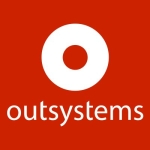What is our primary use case?
We use it for ITIL/ITOM catalog of services. ServiceNow is the CMDB for our organization, and we use the Discovery, Incident Management, Change and Project Management tools within ServiceNow to keep a centralized view of our enterprise. We have recently begun implementing the Governance and Risk (GRC) features as well.
How has it helped my organization?
Discovery has reduced, on average, the time to build/deploy devices within our environment by one hour. This may not seem like much but it adds up over time. It also reaps additional time savings with its ability to capture changes through subsequent discoveries over the life of the device. Discovery is the first piece in the CMDB chain for our organization, making sure that the device appears in the CMDB before it is needed (for, say, a change request).
What is most valuable?
ServiceNow Discovery is very valuable. It does, however, come at a steep cost of time and effort to implement it correctly. Do not be fooled into thinking it will "just work." Discovery, within any platform, requires meticulous planning and management to have it work for you. No discover solution is ever the "silver bullet" either, so plan to have more than one discovery engine implemented to cover your enterprise.
What needs improvement?
Where it could be improved is Discovery. This may sound odd since I just praised the value of ServiceNow Discovery, but improvements to its automatic detection, the breadth of devices, and the depth of devices covered, as well as keeping up with new technologies, are all essential.
Microsoft has caused some issues recently with its decision to move away from SNMP and WMI in favor of PowerShell management. ServiceNow will need to make changes to move away from these deprecated services and to discover these devices. Discovery engines universally rely upon SNMP to detect, at least at an initial level, what type of device they are talking to. Without SNMP, some other platform will need to advertise the device and its capabilities. Most applications offer API (ideally REST-based) connectivity and ServiceNow should expand upon its use of these connections.
For how long have I used the solution?
One to three years.
What do I think about the stability of the solution?
The SaaS platform has been very reliable. ServiceNow has been one of the few SaaS solutions that we have chosen that has not had major issues. The agility to provide test/dev instances, and the seamless access provided by their support team, have been essential in allowing us to work with the solution.
What do I think about the scalability of the solution?
As designed, the solution is incredibly scalable. It is possible for a customer to create logic, processes, or other rules that will hinder or limit this scalability, but that is not the fault of the platform. Having a knowledgeable staff and/or partner will reap huge dividends in the scale of the implementation.
How are customer service and technical support?
Technical support is very good. Like in any support organization, there can be technicians who do not meet your requirements, but the vast majority of the ServiceNow support engineers have been helpful. As a side note, support is delivered via predominately Indian personnel. This is common in the IT industry, but we have seen it almost exclusively with ServiceNow support.
Which solution did I use previously and why did I switch?
We used the CMDB that is offered within the product that we make/sell ourselves (Plex Online). It was not designed to meet the needs of a software company and we took the opportunity to move to something that was a better fit.
How was the initial setup?
The initial setup was incredibly complex. I would pity any customer who decided to self-implement ServiceNow, unless they have experienced, dedicated staff for the length of the implementation. I was largely dedicated to the implementation of the CMDB, Event, Incident, and Discovery pieces of our implementation, with the help of an outside consulting firm, and it still took up a massive amount of my time to implement.
Many parts of the ServiceNow solution do work out-of-the-box. Being flexible also means being complex. Rarely can you just apply a change to all areas or systems. Screens (or forms) are unique to just about every part of the system, so if you want a uniform look and feel you will need to touch a lot of places.
Even if you do not think you will need an on-staff ServiceNow developer, you will want one. Many of the changes to the system are too involved for a standard admin to make (confidently) and there will be no shortage of ongoing work to keep this person (or persons) employed full-time.
We deployed in stages, bringing certain modules online as we were satisfied with the functionality. We are truly still implementing. The core of the system necessary for day-to-day operations was deployed in about one year. But changes and features are still being implemented. We continue to add and subtract from the system as we use it and as ServiceNow offers new or enhanced functionality. We also continue to develop integrations with other business systems.
In terms of our implementation strategy, we took on the system in phases. CMDB was first. This was perceived as necessary for all other functions for our organization since we are using it for ITIL/ITOM. The CMDB was manually populated and maintained at first, while Discovery was implemented. Project came next, along with Time Tracking. After that was Incident, Problem, and Change.
We kept to an Agile deployment methodology focusing on the small pieces needed to keep moving the larger whole along. Customization was kept to a minimum (where possible).
We did use a third-party service provider but it did not go well. I still could not imagine attempting to do it without them, but two years later, we are still replacing much of the work they did. There is a cautionary tale here of not going with the lowest bid.
The biggest failure on the part of our partner was with Discovery. They did not have the depth of knowledge necessary to get this delivered on time or, in fact, working in general. The level of effort needed to implement Discovery, in the end, dwarfed the rest of the platform. The partner absorbed the cost since they failed to understand exactly what it would take to deliver.
What was our ROI?
We have not done an actual ROI evaluation at this point. We determined that it was necessary from a business standpoint to change to a scalable SaaS solution and ROI was not necessary as part of the project scope. I believe that through Discovery and Automation we could likely create an ROI case. In other aspects, systems like Change and Incident may have introduced some toil to our process, but this may eventually become less of an issue as we continue to refine our process.
What's my experience with pricing, setup cost, and licensing?
Isn't pricing always too much? We really do chafe at the ITIL licensing. ITOM is also pretty expensive.
Which other solutions did I evaluate?
We evaluated Service Cloud and ScienceLogic. ServiceNow really seemed to have the most complete offering.
What other advice do I have?
If you plan on using Discovery, double whatever hours/manpower/money you had planned that it would cost. Do not let sales convince you that any part of the system "just works." You will ultimately end up modifying absolutely everything. Definitely look at using a reputable partner for implementation, unless you have a dedicated knowledgeable staff of ServiceNow users who have done it before (and not who just went through training).
We have 60 users for ITIL. We have provided limited access to our development and external management users.
For maintenance, we have two full-time employees. One is a dedicated ServiceNow developer tasked with customization and managing version upgrades. The other maintains the CMDB and Discovery process. I could see adding one more of each.
Deployment was an entire team effort, with different teams championing different modules of the application. At any given time, there were ten to 15 internal employees working on implementation with the assistance of five partner resources.
ServiceNow manages and maintains our ITOM/ITIL daily operations. It is a core piece of our environment that will only continue to grow. We have thought about removing the ITOM piece as we have not been able to implement or leverage it as we had initially planned, but we are still working on understanding what other tools we would need to replace the features and functionality. The primary limit we have on increasing usage across our company is the cost to license ITIL users.
Disclosure: My company does not have a business relationship with this vendor other than being a customer.



















Service now should look at the pricing model and should be more transparent and should be charged based on the module usage.